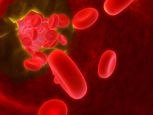News
The latest news on this change — carefully culled from the world wide web by our change agents. They do the surfing, so you don't have to!
Fat Cells Aren't as Lazy as You Think

When you picture your fat cells, you probably imagine something similar to nasty big blobs doing nothing, right? They are actually very active— playing director to many hormones and chemicals, telling them where and when to activate.
When you’re healthy, your fat cells help you fight off infections by commanding the release of chemicals to cause mild inflammation. They also tell hunger hormones when to release, so that you know when to stop and start eating. Your fat cells also tell your liver when to refill its fat supplies.
Sometimes fat cells burst into overdrive and they forget to tell certain chemicals and hormones when to stop. This creates extra strain and stress on the body, which is a big risk factor for heart disease. This process also stops signaling your hunger hormones, leaving you constantly feeling hungry. You gain weight by eating more, which creates more hyper fat cells that push your hormones and chemicals to go, go, go. And so goes the cycle.
Do you have any health conditions that put you at risk for heart disease, such as being overweight or having high blood pressure? Share your tips on lowering your risk! [LA Times]






My concern is kind of the opposite. I have been going through a lot of stress since Feb. Hubby left etc. now I have lost 42lbs. and the weight just keeps falling off. I worry about the effect on my heart etc. I am down to 117 lbs and don't know how to slow down or stop the weight loss. Is heart disease a big concern here as well?